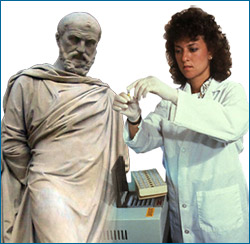In reviewing research on student travel one thing is certain, it is a very complex and important topic. Not only for students who wish to travel but also for the people they will become. Researchers begin with searching for the motivation to want to travel. What makes someone want to invest his or her time and money into such a grand adventure? Only then can researchers begin to understand the effects traveling can have on a person. Next researchers look at the benefits of traveling to see why someone would follow through with the spark to travel. There are health benefits, experiential benefits, and developmental opportunities.
Benefits of traveling
There has been an increase in focus on this topic as more and more we realize the importance of travel as a global society. The benefits of tourism and travel reached the interest of scholars in the field of organizational behavior as well as health sciences.
Mental, emotional, and physical health
As discussed in the roles of perceived travel benefits, organizational behavior research shows how travel can reduce job or school related stress, reduce burnout, as well as overall performance. As for health scientist, it’s been shown that taking a vacation of travel can decrease health risks. In a study of 12,388 people, those who traveled abroad had fewer health risks in a nine-year span (Chen). Even in tourism literature, you can find benefits of travel. Research done by Neal, Sirgy, and Uysal show how challenging experiences and perceived control can contribute to mental wellness (Chen).
Developmental benefits
Along with the effects it has on the well being of a person, there are also developmental benefits. According to (Biniecki), Taylor’s findings suggest that “the learning process of intercultural competencies connects to the development of a worldview.” It’s a learning process that creates a “cultural disequilibrium [which] consists of periods of incongruence experienced by the participants while attempting to integrate themselves into the host culture.” (Biniecki) Taylor’s study provided one way to examine the growth of people who had worldly experiences. But as he continues his research, he suggests that there are multiple ways to gain more perspective with world travel but we will get back to that later in the review.
What I have learned
So would a rational person student abroad? I would say so. It makes complete sense to go abroad because of the benefits it brings and besides finances there really isn’t a negative.
Work Cited
Biniecki, Susan and Conceicao, Simone. “How Living or Traveling to Foreign Locations Influences Adults’ Worldviews and Impacts Personal Identity.” New Horizon in Adult Education and Human Resource Development, vol. 26, 2014, pp. 39-53.
– http://onlinelibrary.wiley.com/doi/10.1002/nha3.20071/full
Chen, Chun-Chu and Erichson, Elizabeth. “The Roles of Perceived Travel Benefits, Importance, and Constraints in Predicting Travel Behavior” Journal of Travel Research, vol. 55, 2016, pp. 509-522.
–http://jtr.sagepub.com/content/55/4/509.full.pdf+html




